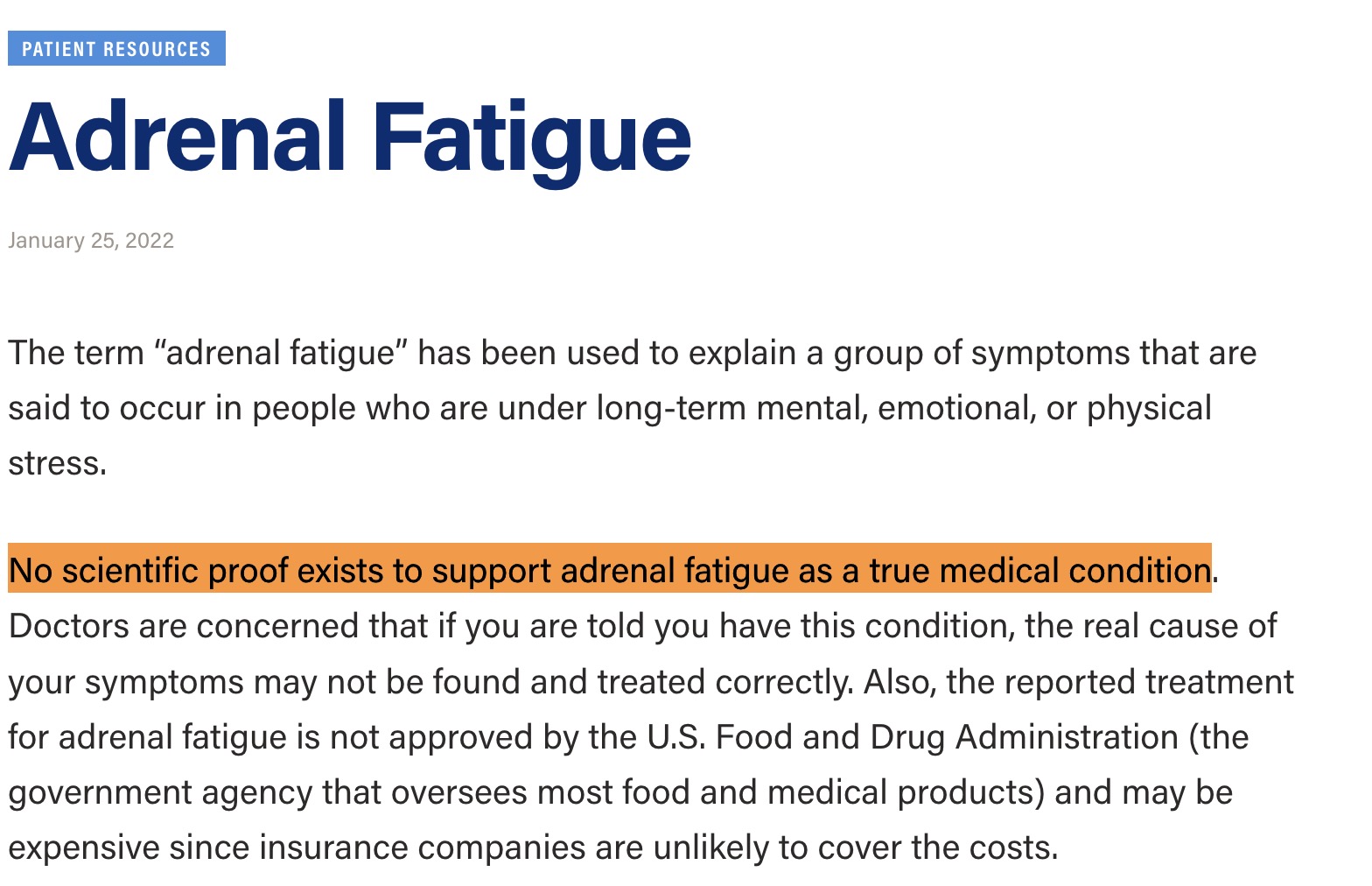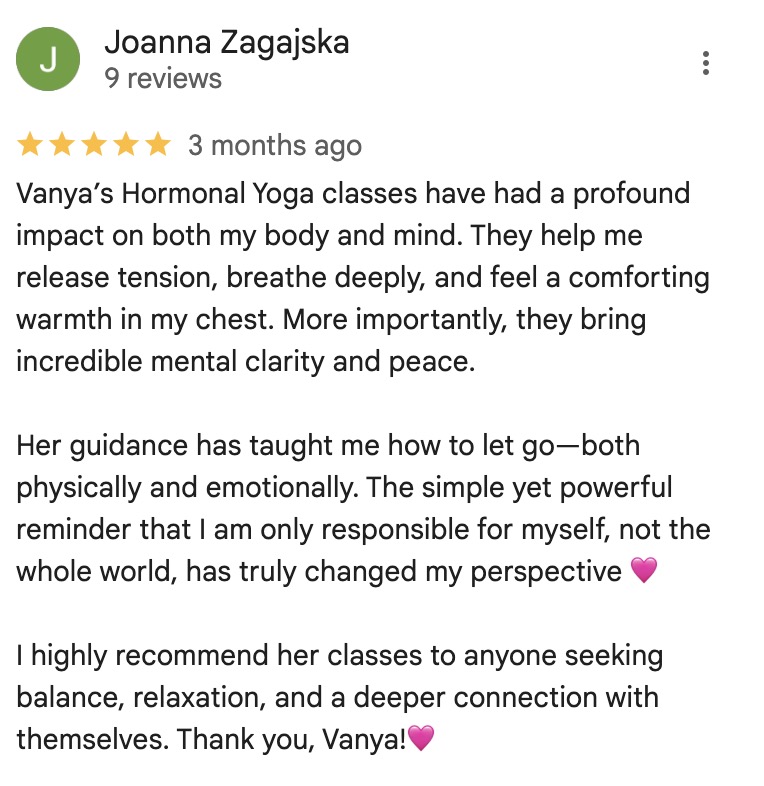"I'm exhausted all the time, but I can't sleep. My energy crashes every afternoon. I crave sugar constantly." Sarah sat across from me, describing symptoms I hear almost weekly. Her doctor had mentioned "adrenal fatigue," but she felt more confused than helped.
After my own experience with medical menopause at 35, I've learned that these crushing symptoms aren't about tired glands. They're about a stressed nervous system that needs support, not supplements. The good news? Hormone Yoga Therapy offers a proven path back to balance.
The Truth About "Adrenal Fatigue"
Let me be direct: "adrenal fatigue" isn't a real medical condition. The Endocrine Society, the world's leading organization of hormone specialists, states clearly that "no scientific proof exists to support adrenal fatigue as a true medical condition."

Your symptoms are real and debilitating. But calling them "adrenal fatigue" can actually delay proper treatment. What you're experiencing is more likely HPA axis dysfunction - a disruption in how your brain and hormones communicate during stress.
This distinction matters because it points toward solutions that actually work.
Understanding Your Body's Real Stress System
Your stress response isn't controlled by tired adrenal glands. It's managed by the hypothalamic-pituitary-adrenal (HPA) axis - a communication network between your brain and hormones.
When you're stressed, your hypothalamus releases hormones that signal your pituitary gland, which then tells your adrenals to make cortisol. This system works perfectly for short-term stress. The problem comes with chronic stress.
Modern life keeps this system activated constantly. Your brain gets less sensitive to cortisol's "off" signals. The result? Either persistently high cortisol or, in some cases, a flattened cortisol rhythm where your body can't mount an adequate stress response.
This dysregulation causes the symptoms blamed on "adrenal fatigue": persistent exhaustion, sleep problems, brain fog, mood swings, and immune dysfunction.
How Yoga Resets Your Stress Response
Research shows yoga can literally rewire how your nervous system responds to stress. A 2015 systematic review of 25 randomized controlled trials found that yoga practice leads to better regulation of both the sympathetic nervous system and HPA axis.
The mechanisms are fascinating. Deep, slow breathing stimulates your vagus nerve, activating your parasympathetic "rest and digest" system. This directly counters the chronic "fight or flight" activation that drives HPA dysfunction.
Multiple studies document yoga's cortisol-lowering effects across different populations:
Medical students under stress saw a 4.8% decrease in morning cortisol after 12 weeks of daily yoga practice, while non-practicing students showed increased levels.
Healthy beginners experienced significant cortisol reductions after just a single 50-minute class.
Women with depression - who typically have elevated cortisol - showed dramatic improvements. Those practicing yoga saw cortisol drop from 111.9 to 91.7 ng/ml over three months. The group taking only antidepressants showed no cortisol change.
Why Hormone Yoga Therapy Works Differently
While any yoga practice can help with stress, Hormone Yoga Therapy targets the endocrine system specifically. Created by Dinah Rodrigues, it combines dynamic postures with intensive breathing techniques designed to stimulate hormone-producing glands.
The practice includes four key elements:
Dynamic asanas that create pressure changes in your torso, potentially increasing blood flow to your adrenals and ovaries.
Bhastrika pranayama (bellows breath) - forceful breathing that may massage internal organs while activating your nervous system.
Tibetan energy techniques that direct healing attention to specific glands through visualization and intention.
Therapeutic yoga nidra - guided relaxation that balances the stimulating effects and deeply calms your nervous system.
This combination addresses both sides of HPA dysfunction. The dynamic elements may help restore healthy cortisol production while the restorative components train your system to relax.
The Science Behind Stress Recovery
One fascinating study compared different types of yoga to see which worked best for stress reduction. Meditative, slower-paced yoga significantly decreased both anxiety and cortisol levels. Power yoga - despite being more intense - showed no cortisol benefit.
This suggests the relaxation response, not physical intensity, drives yoga's stress-healing effects. The restorative elements in Hormone Yoga Therapy may be doing the heavy lifting for HPA regulation.
The research extends beyond cortisol. Yoga interventions improve multiple markers of chronic stress:
- Better sleep quality and duration
- Improved heart rate variability (a measure of nervous system health)
- Reduced inflammatory markers
- Better blood sugar control
- Enhanced immune function
Creating Your Stress-Recovery Practice
If you're dealing with symptoms of chronic stress and HPA dysfunction, start with gentle, consistent practice. The key is regularity, not intensity.
Begin with breathing techniques that activate your parasympathetic system. Try 4-7-8 breathing: inhale for 4 counts, hold for 7, exhale for 8. This specific pattern naturally calms your HPA axis.
Include restorative poses like supported child's pose or legs up the wall. These positions signal safety to your nervous system and help reset stress patterns.
The dynamic elements of Hormone Yoga Therapy - the vigorous breathing and targeted postures - can be added gradually as your system stabilizes. But remember: stress recovery requires patience with your body's natural healing timeline.
Beyond Individual Practice
True recovery from HPA dysfunction involves more than yoga poses. Your nervous system needs comprehensive support:
Consistent sleep - aim for 7-8 hours nightly, going to bed at the same time.
Regular meals - blood sugar swings stress your HPA axis further.
Manageable stress levels - this might mean saying no to extra commitments while you heal.
Professional support - if symptoms are severe or persistent, work with healthcare providers who understand stress-related conditions.
The Ayurvedic Perspective
Ayurveda offers valuable insight into stress recovery. In this system, chronic stress is seen as excess Vata energy - too much movement and not enough grounding.
The solution involves creating stability through routine, warm foods, oil massage, and grounding practices. This ancient wisdom aligns perfectly with modern research on nervous system healing.
Think of your recovery as tending a garden. You can't force plants to grow faster, but you can create the conditions where they thrive. Consistent, gentle care produces lasting change.
Real Women, Real Results
Marina came to my retreat in complete burnout. She hadn't slept properly in weeks and felt constantly overwhelmed. After just one evening practice, she slept soundly through the night. Five days later, she described feeling like a "restored human."
.jpg)
Joanna found that Hormone Yoga classes brought her "incredible mental clarity and peace" along with physical tension relief. The practice taught her to let go emotionally and reminded her she's only responsible for herself, not the whole world.

These transformations aren't magic. They're your nervous system remembering how to function optimally when given the right support.
Moving Forward with Wisdom
The symptoms attributed to "adrenal fatigue" are your body's intelligent response to chronic stress. Instead of fighting your body or trying to force tired glands back to work, honor what it's communicating.
Your HPA axis can heal when given consistent, gentle support. Yoga provides evidence-based tools for this recovery, especially when practiced with understanding of your body's real stress mechanisms.
The path back to energy and resilience isn't about pushing harder. It's about creating space for your natural healing capacity to emerge. Every slow breath, every restorative pose, every moment of self-compassion supports this return to balance.
Start where you are. Trust the process. Your body knows how to heal when given the right conditions.
Ready to support your stress recovery with targeted practices? Join the waitlist for my next Hormone Yoga Therapy program, where you'll learn specific techniques for nervous system healing in a supportive community setting.
Free Email Course to Better Understand Your Hormones
Get clear, practical information directly to your email, to help you manage hormonal changes.
In just few minutes a day, you'll learn:
The real reasons behind hot flashes and mood swings
2-minute breathing techniques you can use anywhere
Simple yoga poses that balance your hormones
Quick fixes for sudden symptoms during meetings
Daily practices that create lasting change
Each email brings you closer to understanding and working with your body's natural rhythms.




.jpg)

